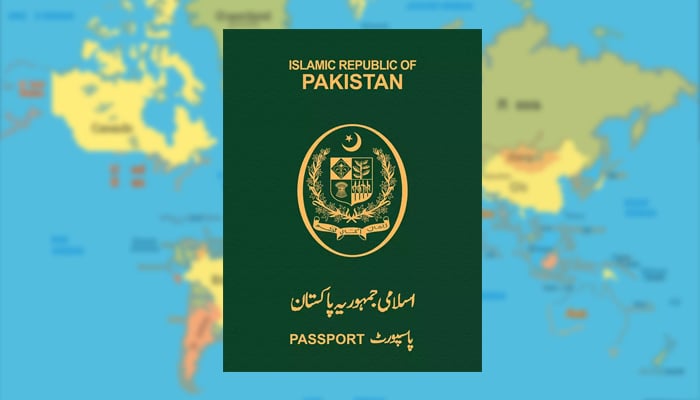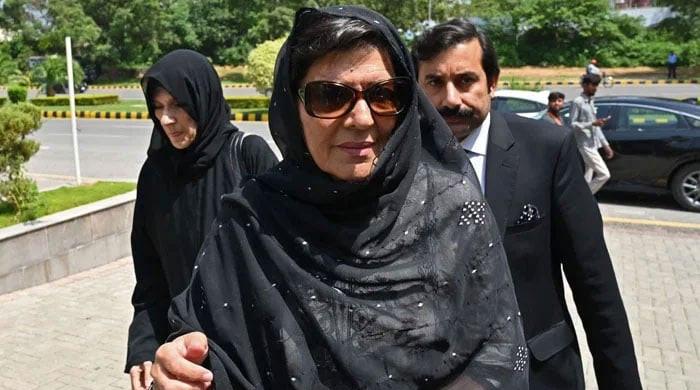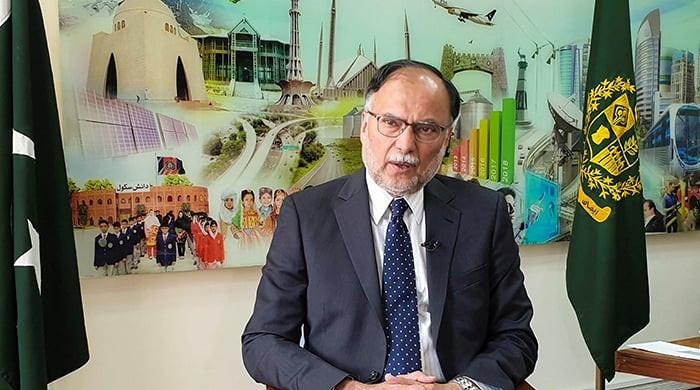Explainer: Why Pakistani passport is ranked 4th worst in the world
Pakistan's passport ranks 101 — just above warn-torn or crises-hit countries Syria, Iraq, and Afghanistan
July 31, 2023

Continuing its declining trend, Pakistan's passport ranked the fourth weakest in the world, according to data from UK-based citizenship and residence advisory firm Henley & Partners, which ranks 199 nations.
The Henley Passport Index ranks all the world's passports according to the number of destinations their holders can access without a prior visa.
In the latest report released in the third week of July, the Pakistani passport was ranked 101 — just above warn-torn or crises-hit countries Syria, Iraq, and Afghanistan.
A Pakistani passport holder can access 33 travel destinations visa-free or through an on-arrival visa, as opposed to the last quarterly report, when it allowed access to 35 destinations.
So, how a passport is ranked?
The Henley Passport Index compares the visa-free access of 199 different passports to 227 travel destinations. If no visa is required, then a score with value = 1 is created for that passport. The same applies if a person can obtain a visa on arrival, a visitor's permit, or an electronic travel authority (ETA) when entering a destination.
Where a visa is required, or where a passport holder has to obtain a government-approved electronic visa (e-Visa) before departure, a score with value = 0 is assigned. This also applies if you need pre-departure government approval for a visa on arrival.
The total score for each passport equals the number of destinations for which no visa is required (value = 1).
Therefore, Singapore's passport ranks first as it provides visa-free access to 192 travel destinations, while Germany, Italy, and Spain rank second, providing access to 190.
In Pakistan's case, its passport holders get visa-free access to 33 countries — less than India, whose passport gives visa-free access to 57 nations.
This is why Pakistan is ranked 101.
Since 2006, when the index was established, Pakistan's ranking has fallen from 79th to 101 — due to a lack of holistic policy-making to attract visitors and investors from abroad.
Sarah Nicklin, the Group Head of Public Relations at Henley & Partners, told Geo.tv via email that Pakistan had very much "stood still" in terms of securing additional visa-free access for its citizens and in terms of its own visa openness to other nations.
"They have only improved their visa-free access score by one point in the last 10 years, making it impossible for them to move up the ranking (especially when compared to other nations like the UAE, for example, who have worked hard to improve their visa-free access by a record 44 new destinations)."
Nicklin mentioned that Pakistan's ranking on the index has fluctuated from between 91 and 109, mostly due to the volatility and changes above them (so depending on who moves up and down above them, the bottom-most ranked countries change their rank from about 90 to 111 depending on how grouped the other rankings are above).
For Pakistan to improve, it needs a robust mechanism on all fronts — bolster ties with other nations, strengthen its security and economic situation, and sign agreements for free movement.
The country also needs to focus on tourism as nations such as UAE, Saudi Arabia, and Qatar have risen in the passport ranks after liberalising their visa policy.
Henley's research also shows that compared to developed or high-income countries, people from developing nations do not possess hassle-free access to the former — because they are deemed high-risk when it comes to security, asylum, and overstay.
But why do that? Why improve your ranking at all?
In line with its index, the firm says those who have remained among the top rankings, with more open economies that encourage foreign investment and international trade, tend to grow faster, are more innovative and productive, and provide higher income and more opportunities to their citizens.
"Conversely, the reverse holds true. There are developing nations with significant and growing private wealth that have not yet built the geopolitical, diplomatic, and trade relationships that enable their governments to sign visa waivers with other countries, placing their citizens at a disadvantage."
The benefits from the power of a sovereign country's passport are not only limited to economic liberty and growing travel opportunities for its citizens, but it also diverts foreign investors who are on the lookout for investment opportunities.
Nations that can help improve economic mobility through visa-free access to important markets and economies that account for a larger share of global GDP are more likely to attract investments from international businesspeople, entrepreneurs, and affluent families.











